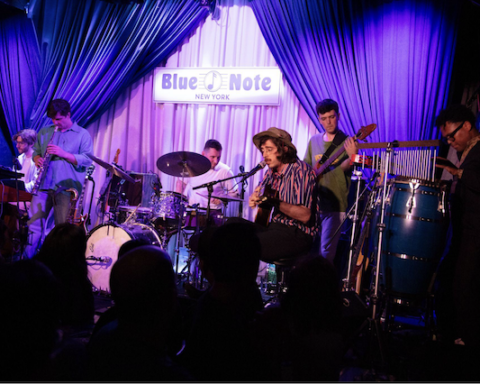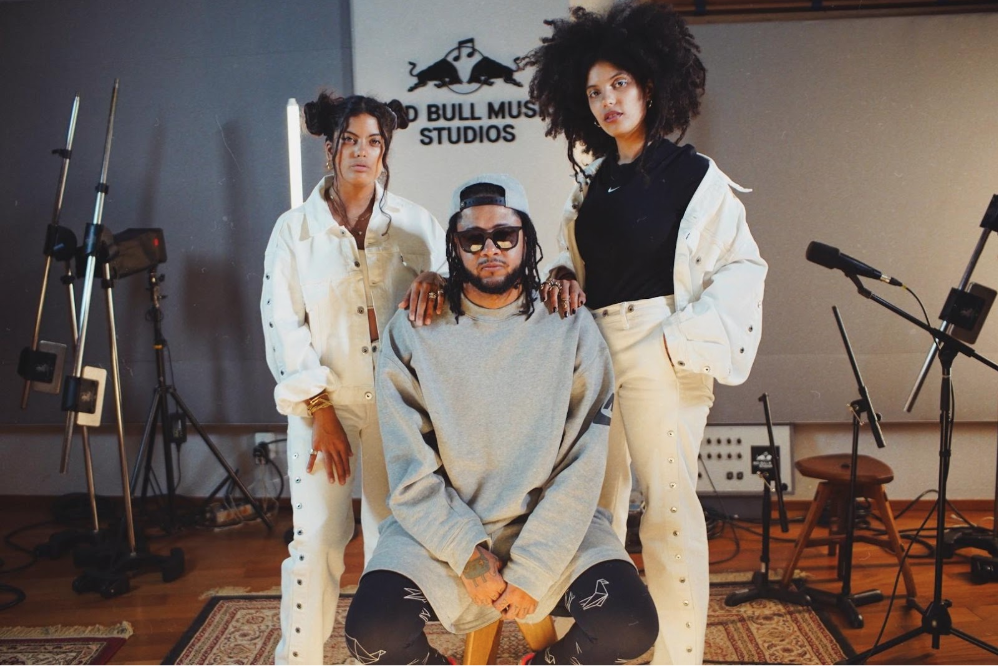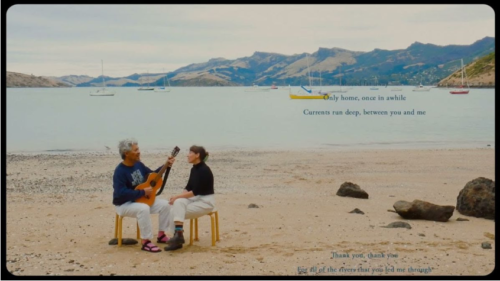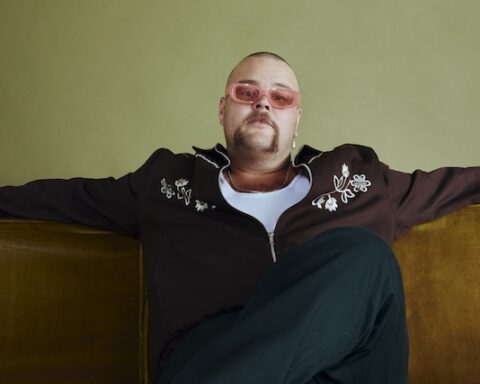VARIOUS
GHANA SPECIAL 2: ELECTRONIC HIGHLIFE & AFRO SOUNDS IN THE DIASPORA, 1980-93

2CD /3LP
A1. The Godfathers – Ebe Ye Yie Ni / A2. Pat Thomas – Gye Wani / A3. Bessa Simons – Sii Nana / B1. Rex Gyamfi – Obiara Bewu / B2. Pepper, Onion, Ginger & Salt – M.c. Mambo / B3. Andy Vans – Adjoa Amisa / C1. Starlite – Anoma Koro / C2. Abdul Raheem – Alaiye / C3. Ernest Honny – New Dance / D1. Kwasi Afari Minta – Barima Nsu / D2. Marijata – Otanhunu / D3. Jon K – Asafo / E1. Dadadi – Jigi Jigi / E2. Gyedu Blay Ambolley – Apple / E3. Charles Amoah – Fre Me (Call Me) / F1. George Darko – Kaakyire Nua / F2. Nan Mayen – Mumude / F3. Nana Budjei – Asobrachie
More than 20 years after the release of the heavy funk and Afrobeat-focused Ghana Soundz compilations, and following the success of 2009’s Ghana Special: Modern Highlife, Afro Sounds & Ghanaian Blues 1968-1981, Soundway is now shining the spotlight on the multifaceted, diasporic sounds of the ‘80s on new compilation Ghana Special – Volume 2, a collection of 18 burger highlife, electronic afrobeat, and reggae tracks.
Though Ghanaian to its very core, burger highlife emerged mostly outside of Ghana and just as the sun was setting on the country’s musical golden age. In the 1960s and 1970s cities such as Accra, Tema, Takoradi, and Cape Coast were home to thriving music scenes, and the loud horn sections of the big highlife bands, or the simpler, socially conscious palm wine music ruled the dance halls, locals drinkeries, and airwaves.
Back then music represented a powerful force, and an artist’s endorsement or dissent could make or break a politician. Perhaps to curb this power, the incoming military regime-imposed curfews and substantial import taxes on musical instruments in the early 1980s. These measures, coupled with a profound economic downturn and shifting musical preferences that saw DJs replacing large live bands, served as the final blow to Ghana’s once-thriving music scene.
Musicians left Ghana in droves, scattering across West Africa, Europe, and North America. Thanks in part to its more permissive migration policies Germany became the heart of this scene, and the movement in fact takes its name from “Bürger”, the German for “citizen”. Less confined by genres than back in Ghana, artists in the diaspora were quick to engage with the different styles, working disco, boogie, and funk into their highlife melodies. Access to state-of-the-art studios and modern musical technologies also gave birth to all sorts of mutations: burger highlife in fact is less defined by one particular sound, than by the experimental approach and global outlook of its artists.
Throughout the 1980s Ghanaian artists kept producing increasingly innovative and experimental hybrids, winning over new audiences abroad. Though back in Ghana the new sound was initially met with disapproval by purists, it slowly became a symbol of a new, worldly and modern Ghanaian identity. The creativity and open mindedness that characterised burger highlife have gone on to shape the evolution of Ghanaian music since, giving artists the freedom to explore new global sounds while preserving a proudly Ghanaian soul. Ghana Special – Volume 2 stands as a vibrant tribute to the lasting legacy of this groundbreaking musical era.
Label – SOUNDWAY
RUBEL
AS PALAVRAS, VOL. 1 & 2
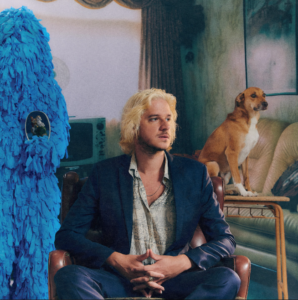
2LP
A1. Forró Violento (Instrumental) / A2. Grão De Areia / A3. Não Vou Reclamar De Deus / A4. Toda Beleza / A5. Put@ria! / B1. Rubelía / B2. Posso Dizer / B3. Vinheta As Palavras / B4. As Palavras / B5. Forró Violento / C1. Torto Arado / C2. Lua De Garrafa / C3. Na Mão Do Palhaço / C4. Doutor Albieri / C5. Samba De Amanda E Té / D1. Amor De Mãe / D2. Vinheta As Palavras II / D3. Assum Preto / D4. Forró No Escuro / D5. Toda Beleza (Pelos Loirinhos)
From the very first listen of Rubel’s Latin Grammy-nominated third album As Palavras, Vol. 1 & 2, you can feel its transformative force for the MPB genre. Here we see one of Rio’s brightest stars, fusing the contemporary with the classic, soaking up the richness of Brazil’s musical heritage. The result is a marauding 20-track epic, incorporating traditional styles such as forró, MPB, pagode and samba with modern baile funk, rasteirinha and hip-hop.
The album exudes a sense of freedom and creativity, playfully and provocatively juggling the familiar with the forward-thinking. The tracks are divided across two records, navigating feelings of love, heartbreak and discovery, whilst balancing themes of violence, passion, irony and affection. Collaborating with some of the country’s most esteemed artists such as Gabriel do Borel, Liniker, Luedji Luna, Tim Bernardes and Ana Caetano, Rubel takes this fusion of styles, subjects and flavours to the global stage.
The grand, forró-blending, choral opener, ‘Forró Violento (Instrumental)’ sets the tone for the album, with references and links between tradition and modernity everywhere to be seen. From the Ana Frango Elétrico produced, funk flexing, samba-soul brilliance of ‘Não Vou Reclamar de Deus’, to the album’s title cut ‘As Palavras’, in collaboration with Tim Bernardes, that melds MPB influences with electronic elements and hip-hop touches.
At times the album is gentle and intimate with tracks like ‘Toda Beleza’ featuring Bala Desejo, or the ode to friendship ‘Lua de Garrafa’, composed with the legendary Milton Nascimento. At others, the grooves hit harder, with sounds from the favelas laced within. ‘Put@ria!’, explores the universe of baile funk, with BK’ and MC Carol trading off on the mic, as ‘Rubelía’ moves between reggaeton, funk, and hip hop. The latter is a tribute to a key influence of the album, Spanish star Rosalía and her parallel mix of current with classic.
Ultimately though the beauty of this album lies in its concept. In the midst of a country divided, ‘As Palavras Vol. 1 & 2’ sets out to bring together genres and generations, grounded in rhythms and words that have helped define Brazil through the ages.
Label: MR BONGO

